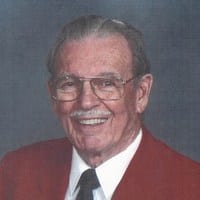In March, 2020, we received notice from Nathan Keedy that TAA’s founding member, Mike Keedy, had passed away, just shy of his 100th birthday. Nathan provided his father’s obituary, which we share below, with an expanded section related to Mike’s TAA activities.
Mervin (Mike) L. Keedy Obituary
 Dr. Mervin (Mike) Keedy died peacefully at home with his family on March 14. As a math professor it is fitting that he died on pi day, 3.14. Dr. Keedy was born (the oldest of 3 sons) on August 2, 1920 on a farm in western Nebraska of parents: Albert L. Keedy, Jr. and Iva Barney Keedy.
Dr. Mervin (Mike) Keedy died peacefully at home with his family on March 14. As a math professor it is fitting that he died on pi day, 3.14. Dr. Keedy was born (the oldest of 3 sons) on August 2, 1920 on a farm in western Nebraska of parents: Albert L. Keedy, Jr. and Iva Barney Keedy.




